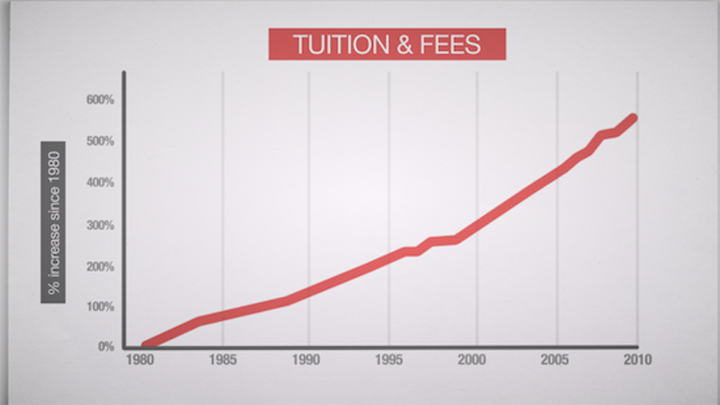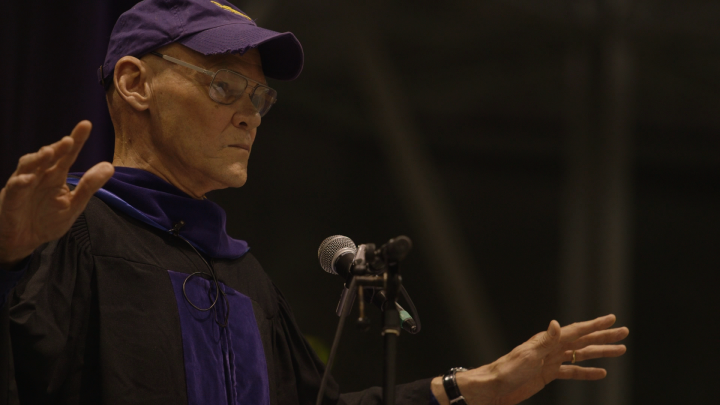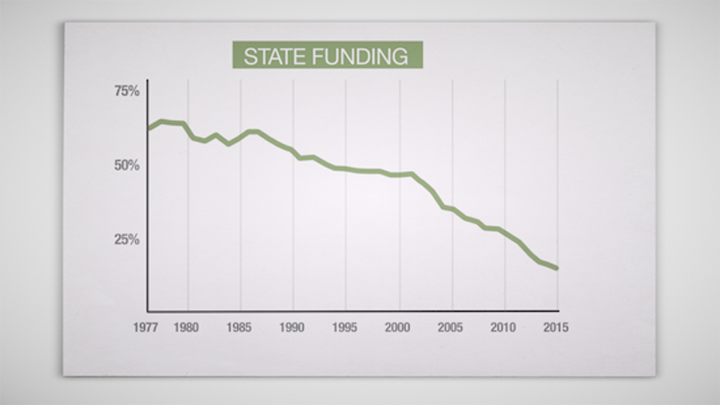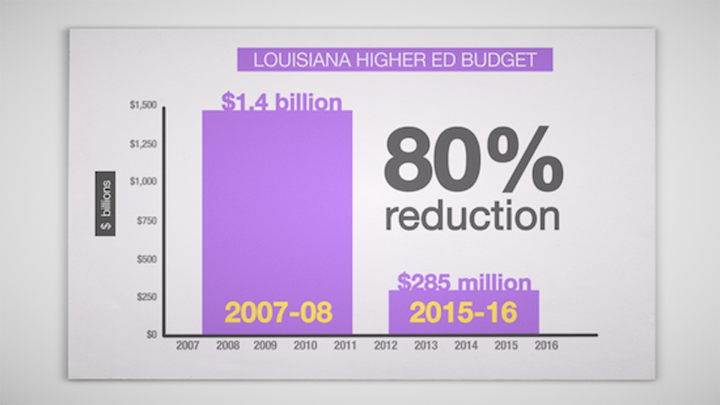The political and economic turmoil surrounding higher education in general — and publicly funded higher education in particular — is one of the most complex, misunderstood and underexamined issues confronting our country. Starving the Beast is a profoundly insightful and well-reasoned explication of the problems plaguing our public universities, and as such, absolutely essential viewing for anyone concerned with education, the encroachment of capitalism into aspects of life that should never be monetized and the future of America on the global stage.
At the heart of Starving the Beast is a fundamental question about the nature and purpose of higher education. Should a college education be engineered to produce graduates with the requisite critical thinking skills and breadth of expertise to benefit society in unexpected ways, or should it instead turn out functional workers with the appropriate aptitudes required to enter the workforce? Documentarian Steve Mims and producer Bill Banowsky definitely have an opinion, but to their credit, they allow talking heads from both sides of the debate to voice their arguments with no interference.
Mims’ documentary looks at five state-subsidized university systems, including the University of North Carolina, as microcosmic case studies in an ongoing battle through which economic conservatives have sought the widespread defunding of public higher education by passing the onus of tuition on to students and their families rather than the state. While the film gives almost equal screen time to parties from both sides of the debate, the negative impact of such a course of action is made immediately clear, even if the dire long-term consequences are more difficult to predict.

A chronological narrative is established over the course of the film, detailing a 35-year process of defunding that has directly coincided with soaring tuition costs and skyrocketing student debt. This process took a distinct turn for the worse in 2011, when Jeff Sandefer, a disgruntled University of Texas adjunct business professor with the ear of then Gov. Rick Perry, wrote an insidious listicle advocating the commodification of education. Sandefer codified the concept of treating students like consumers and a college degree as a product whose value could be quantified in dollar amounts, also suggesting that tenure should be abolished and professors should be assessed on the basis of the money they generated for their respective universities. This set of misguided principles led to extensive political infighting in other states, ultimately resulting in the temporary ousting of a University of Virginia president and the near-bankruptcy of Louisiana State University.
The film’s full title, Starving the Beast: The Battle to Disrupt and Reform America’s Public Universities, is drawn from two sources: the Beast in question being the federal government, the title referring to a phrase circulated by the Reagan administration as a catchphrase to encompass sweeping tax cuts that threatened to defund a number of social support programs including Medicaid and Welfare; and the titular disruption referencing The Innovator’s Dilemma, a 1997 book by Harvard professor Clayton Christensen that espoused a concept known as “disruptive innovation,” which became popular in the internet-bubble-era business world. As some interviewees in the film correctly point out, Christensen’s ideas have little basis in objective reality, and even less place in the classroom beyond a possible aside in a lecture.
While the political position of the filmmakers is clear, Starving the Beast does not come across as a leftist screed, but as a measured and fair assessment of the facts at hand. More significantly, the film contextualizes the opposing voices in such a way that complex political ideas are rendered accessible and engaging to the average viewer, not just the public policy wonks among us. The subject matter itself may still be on the dry side, but Mims masterfully establishes the magnitude and urgency of the problem confronting our publicly funded institutions of higher education, one of our country’s most laudable accomplishments. By bringing the names of Jefferson and Lincoln to bear in favor of these institutions, the filmmakers leave no question as to which side of history moviegoers will want to find themselves. Not rated
Opens Friday at Fine Arts Theatre








Before you comment
The comments section is here to provide a platform for civil dialogue on the issues we face together as a local community. Xpress is committed to offering this platform for all voices, but when the tone of the discussion gets nasty or strays off topic, we believe many people choose not to participate. Xpress editors are determined to moderate comments to ensure a constructive interchange is maintained. All comments judged not to be in keeping with the spirit of civil discourse will be removed and repeat violators will be banned. See here for our terms of service. Thank you for being part of this effort to promote respectful discussion.